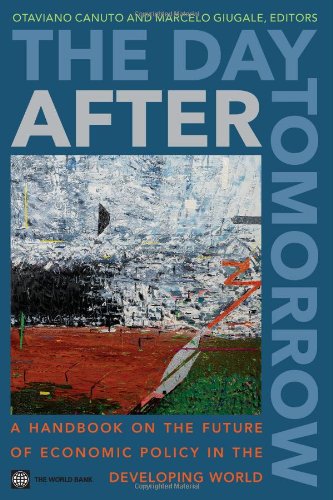

Most ebook files are in PDF format, so you can easily read them using various software such as Foxit Reader or directly on the Google Chrome browser.
Some ebook files are released by publishers in other formats such as .awz, .mobi, .epub, .fb2, etc. You may need to install specific software to read these formats on mobile/PC, such as Calibre.
Please read the tutorial at this link: https://ebookbell.com/faq
We offer FREE conversion to the popular formats you request; however, this may take some time. Therefore, right after payment, please email us, and we will try to provide the service as quickly as possible.
For some exceptional file formats or broken links (if any), please refrain from opening any disputes. Instead, email us first, and we will try to assist within a maximum of 6 hours.
EbookBell Team

0.0
0 reviewsThe 2008–09 global financial crisis shook the ground under the conventional wisdom that had guided mainstream development economics. Much of what had been held as true for decades is now open to reexamination— from what the role of governments should be in markets to which countries will be the engines of the world’s economy, from what people need to leave poverty to what businesses need to stay competitive.
Development economists look into the future. They do not just ask how things work today, but how a new policy, program, or project would make them work tomorrow. They view the world and history as a learning process—past and present are inputs into thinking about what is coming. It is that appetite for a vision of the future that led the authors of The Day after Tomorrow: A Handbook on the Future of Economic Policy in the Developing World to invite some 40 development economists, most of them from the World Bank’s Poverty Reduction and Economic Management Network—an epicenter of the profession—to report what they see on the horizon of their technical disciplines and of their geographic areas of specialization.
The disconcerting but exciting search for a new intellectual compact has begun. To help guide the discussion, The Day after Tomorrow: A Handbook on the Future of Economic Policy in the Developing World puts forth four key messages:
While some regions will do better than others, and some technical areas will be clearer than others, there is no question that the horizon of economic policy for developing countries is promising—risky, yes, but promising. The rebalancing of global growth toward, at the very least, a multiplicity of engines, will give the developing world a new relevance.